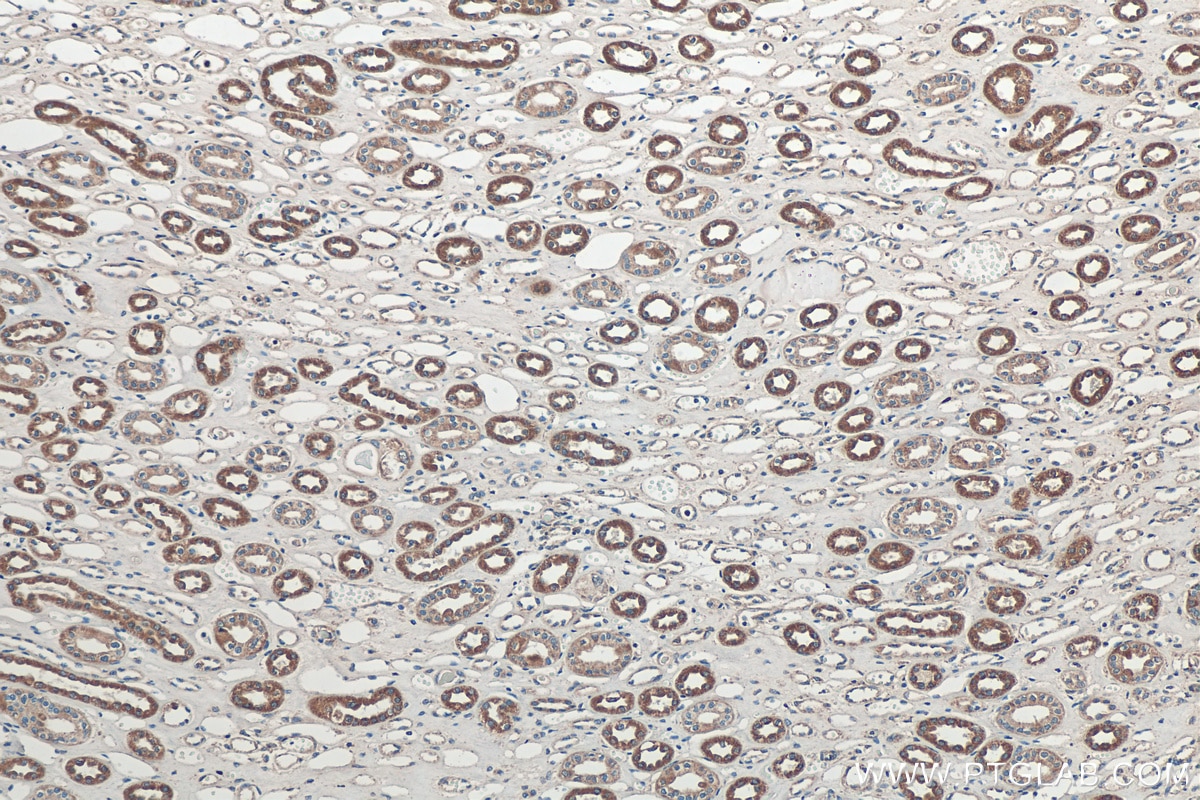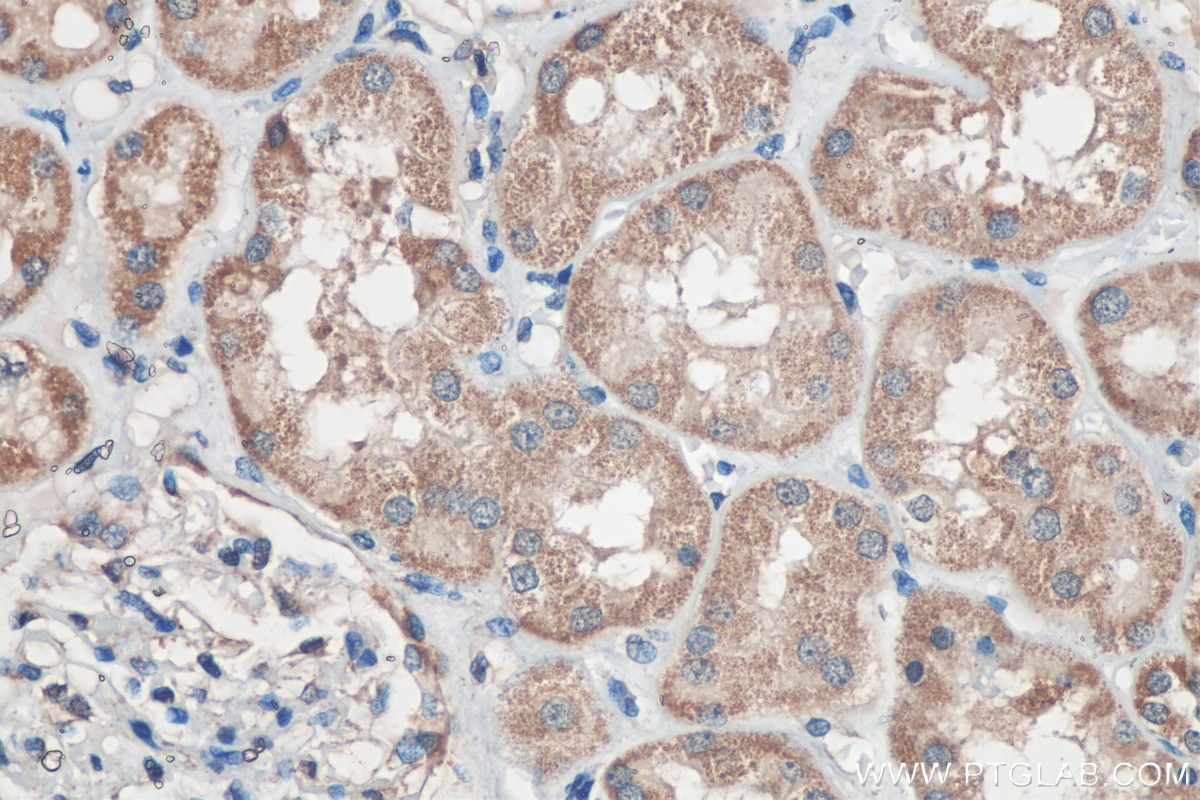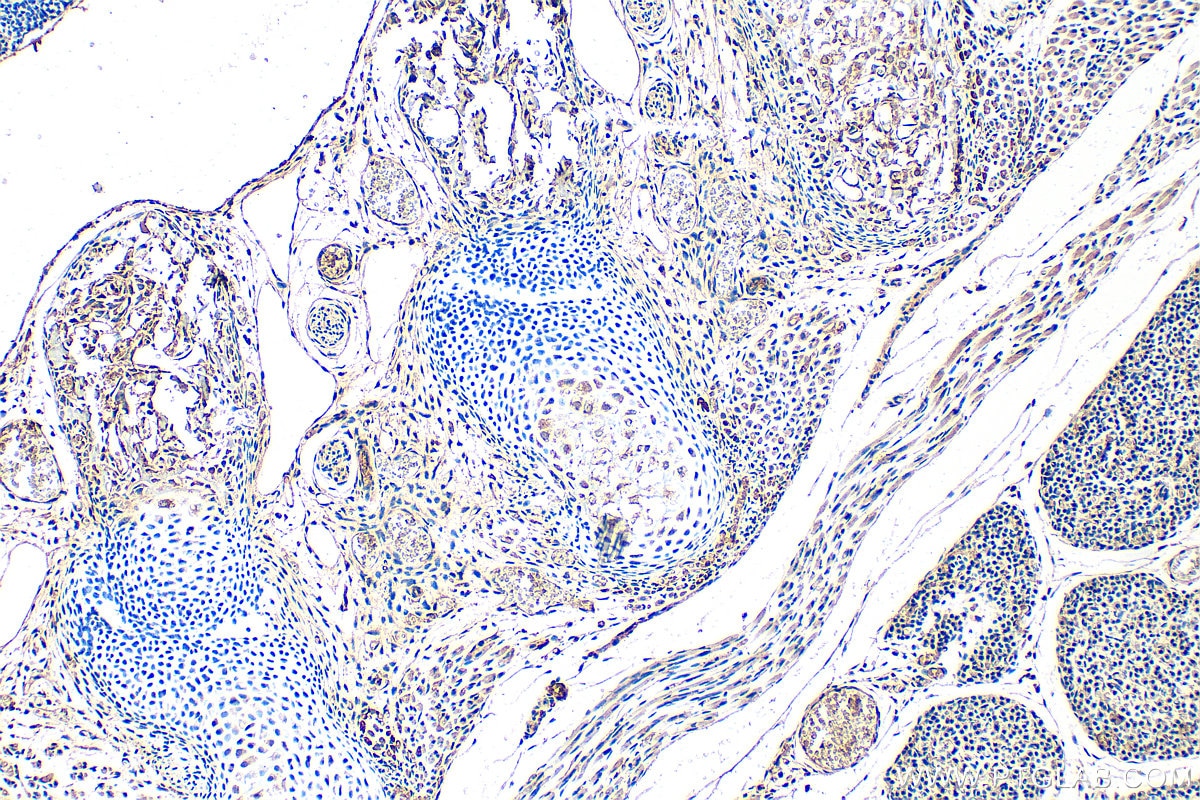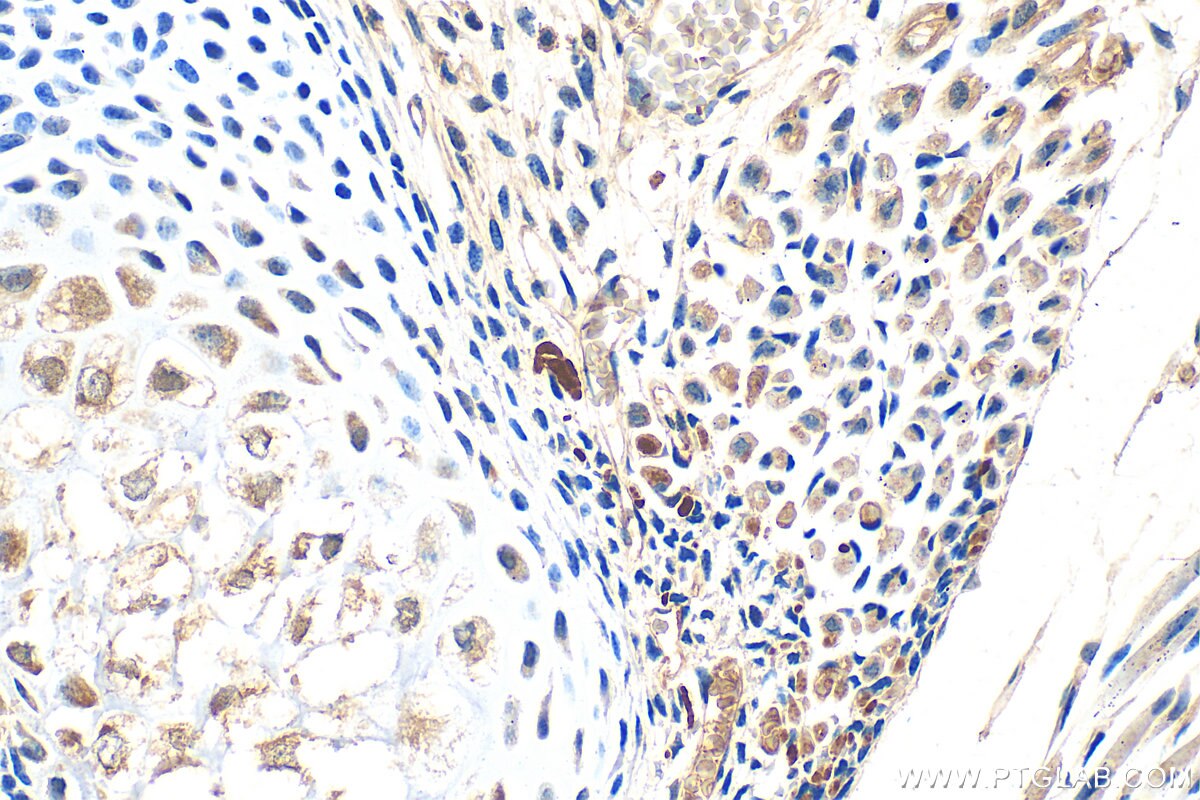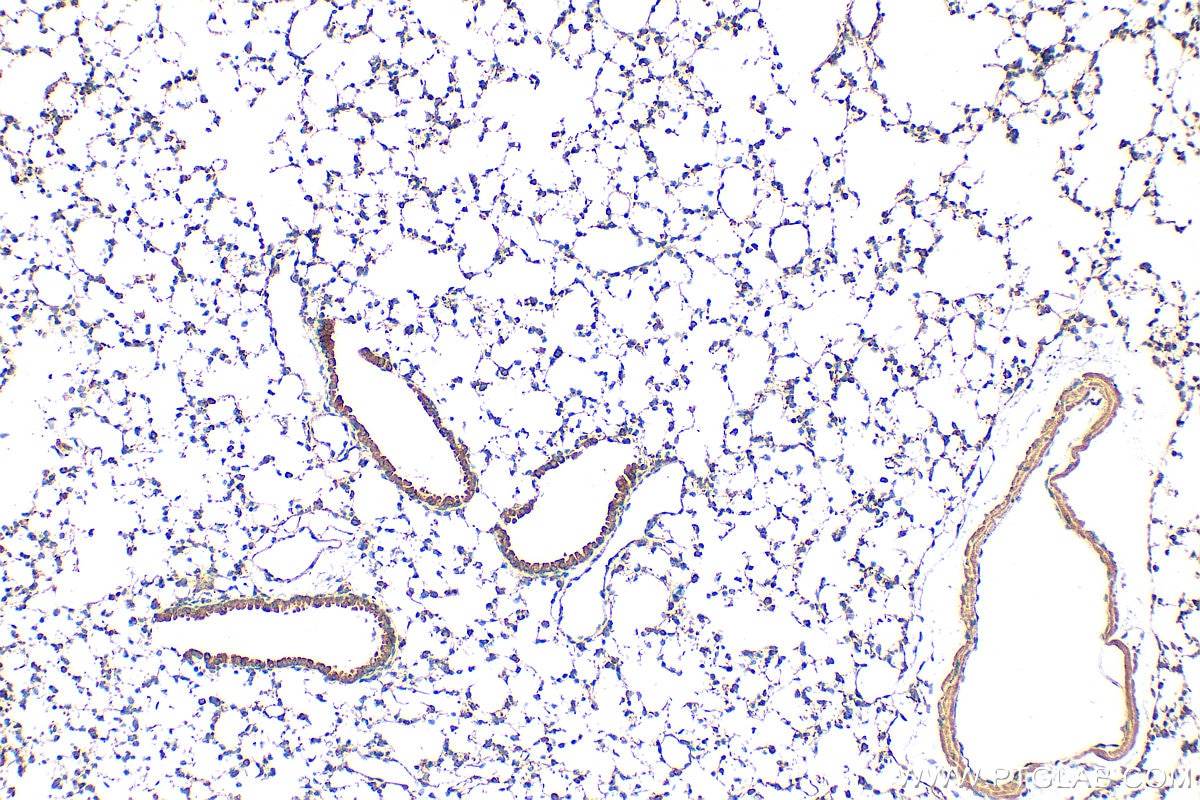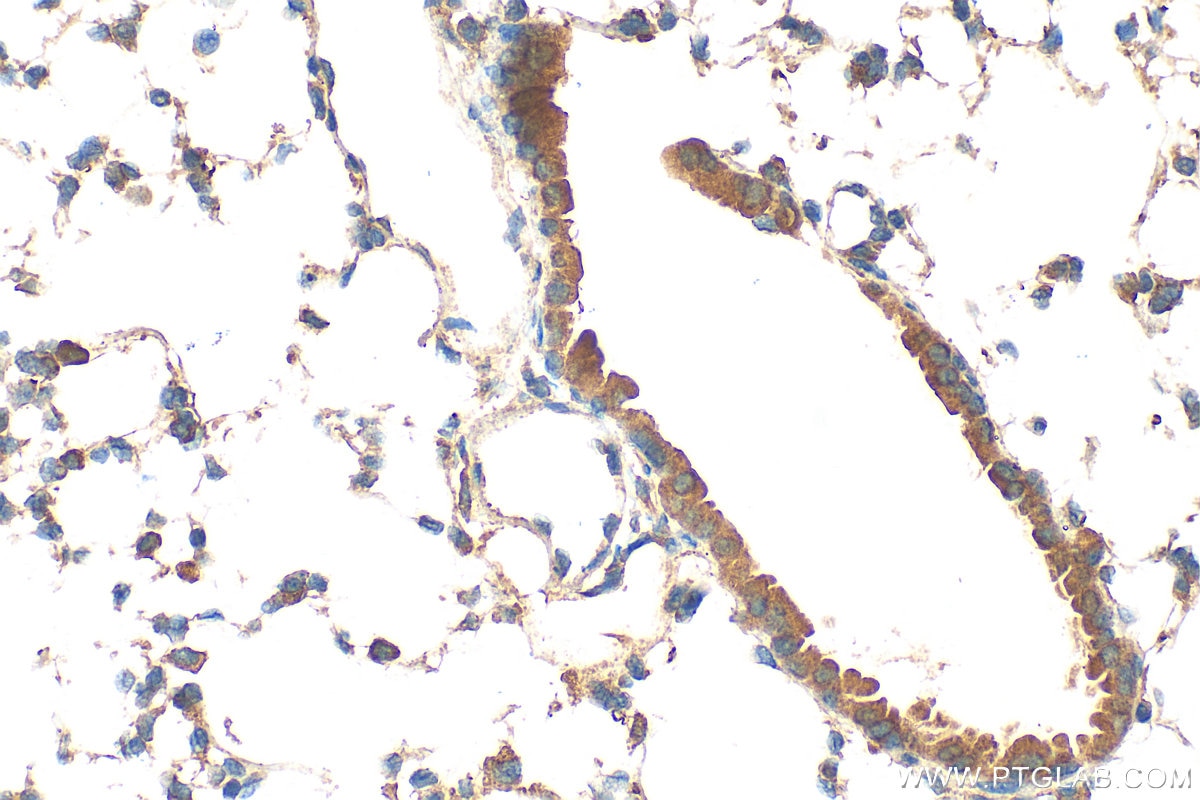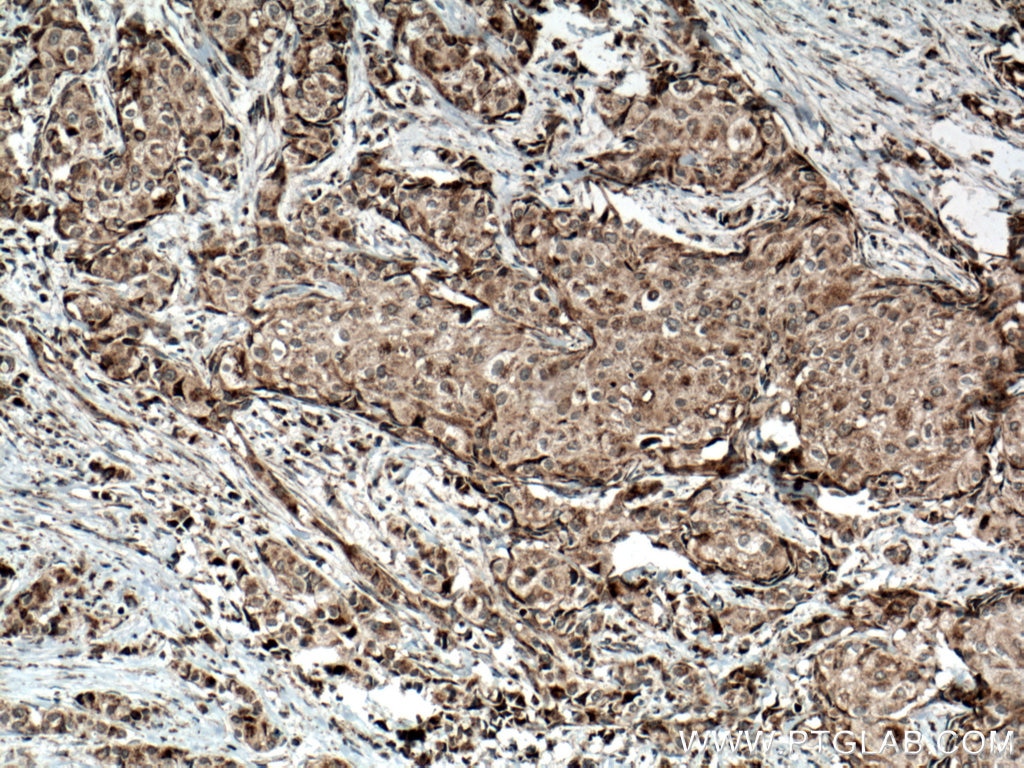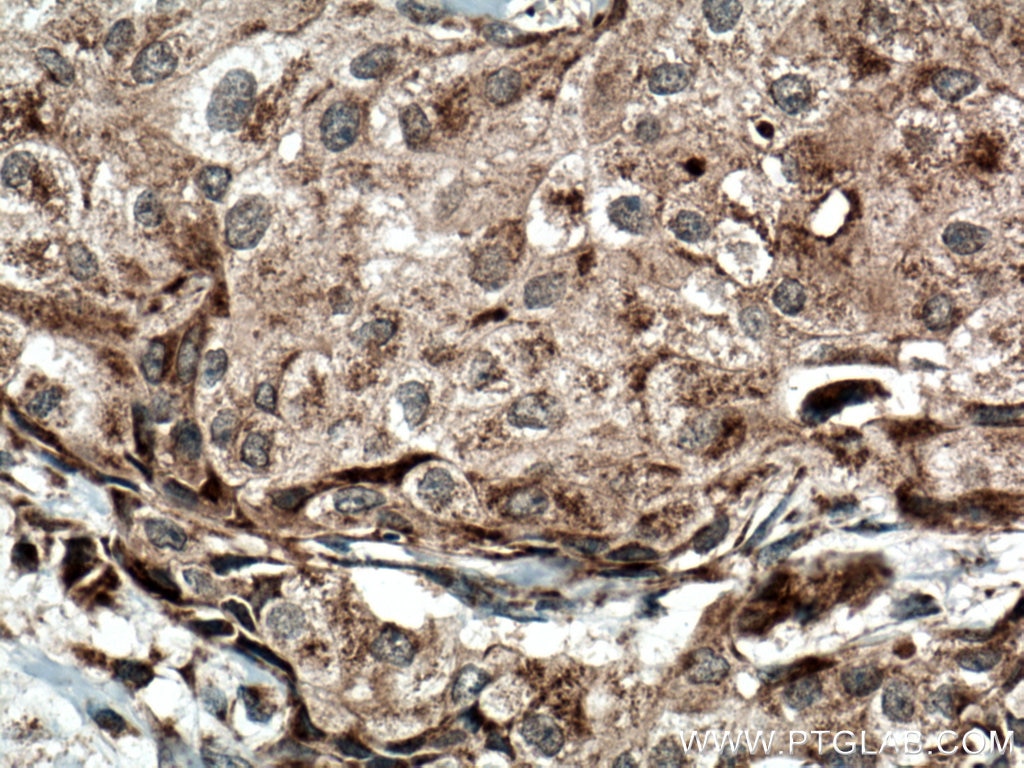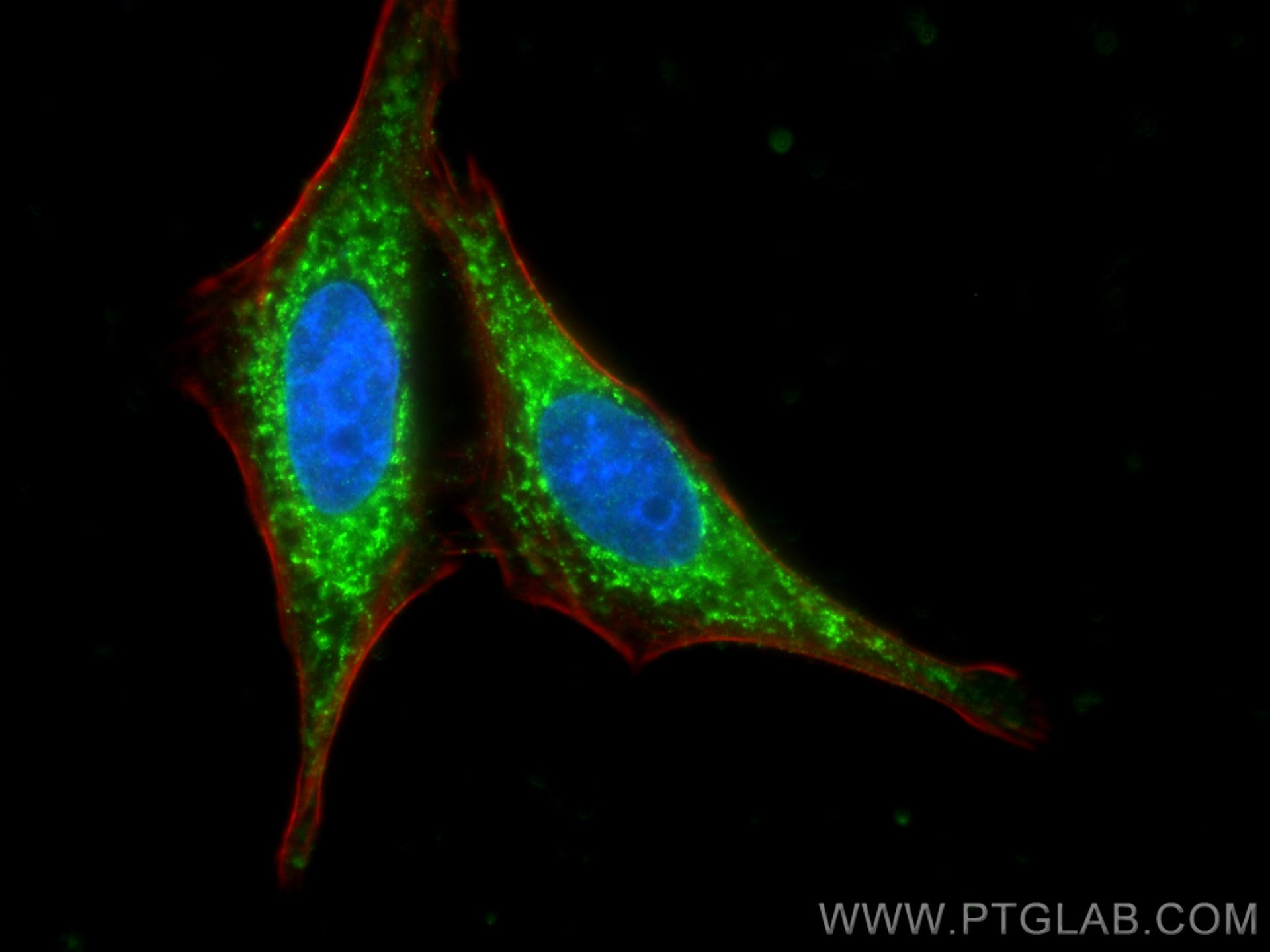Tested Applications
| Positive IHC detected in | human kidney tissue, human breast cancer tissue, mouse embryo tissue, mouse lung tissue Note: suggested antigen retrieval with TE buffer pH 9.0; (*) Alternatively, antigen retrieval may be performed with citrate buffer pH 6.0 |
| Positive IF/ICC detected in | HepG2 cells |
Recommended dilution
| Application | Dilution |
|---|---|
| Immunohistochemistry (IHC) | IHC : 1:50-1:500 |
| Immunofluorescence (IF)/ICC | IF/ICC : 1:50-1:500 |
| It is recommended that this reagent should be titrated in each testing system to obtain optimal results. | |
| Sample-dependent, Check data in validation data gallery. | |
Published Applications
| KD/KO | See 1 publications below |
| WB | See 8 publications below |
| IHC | See 8 publications below |
| IF | See 6 publications below |
Product Information
21933-1-AP targets SOST/Sclerostin in WB, IHC, IF/ICC, ELISA applications and shows reactivity with human, mouse samples.
| Tested Reactivity | human, mouse |
| Cited Reactivity | human, mouse, rat |
| Host / Isotype | Rabbit / IgG |
| Class | Polyclonal |
| Type | Antibody |
| Immunogen |
CatNo: Ag16567 Product name: Recombinant human SOST protein Source: e coli.-derived, PET28a Tag: 6*His Domain: 36-213 aa of BC101086 Sequence: IIPELGEYPEPPPELENNKTMNRAENGGRPPHHPFETKDVSEYSCRELHFTRYVTDGPCRSAKPVTELVCSGQCGPARLLPNAIGRGKWWRPSGPDFRCIPDRYRAQRVQLLCPGGEAPRARKVRLVASCKCKRLTRFHNQSELKDFGTEAARPQKGRKPRPRARSAKANQAELENAY Predict reactive species |
| Full Name | sclerosteosis |
| Calculated Molecular Weight | 213 aa, 24 kDa |
| GenBank Accession Number | BC101086 |
| Gene Symbol | Sclerostin |
| Gene ID (NCBI) | 50964 |
| RRID | AB_2878947 |
| Conjugate | Unconjugated |
| Form | Liquid |
| Purification Method | Antigen affinity purification |
| UNIPROT ID | Q9BQB4 |
| Storage Buffer | PBS with 0.02% sodium azide and 50% glycerol, pH 7.3. |
| Storage Conditions | Store at -20°C. Stable for one year after shipment. Aliquoting is unnecessary for -20oC storage. 20ul sizes contain 0.1% BSA. |
Background Information
Sclerostin is a secreted glycoprotein with a C-terminal cysteine knot-like (CTCK) domain and sequence similarity to the DAN (differential screening-selected gene aberrative in neuroblastoma) family of bone morphogenetic protein (BMP) antagonists. Loss-of-function mutations in this gene are associated with an autosomal-recessive disorder, sclerosteosis, which causes progressive bone overgrowth. A deletion downstream of this gene, which causes reduced sclerostin expression, is associated with a milder form of the disorder called van Buchem disease
Protocols
| Product Specific Protocols | |
|---|---|
| IF protocol for SOST/Sclerostin antibody 21933-1-AP | Download protocol |
| IHC protocol for SOST/Sclerostin antibody 21933-1-AP | Download protocol |
| Standard Protocols | |
|---|---|
| Click here to view our Standard Protocols |
Publications
| Species | Application | Title |
|---|---|---|
EMBO Mol Med Sigma-1 receptor attenuates osteoclastogenesis by promoting ER-associated degradation of SERCA2. | ||
Aging (Albany NY) Cyclooxygenase-2/sclerostin mediates TGF-β1-induced calcification in vascular smooth muscle cells and rats undergoing renal failure. | ||
Front Oncol Sclerostin Suppression Facilitates Uveal Melanoma Progression Through Activating Wnt/β-Catenin Signaling Via Binding to Membrane Receptors LRP5/LRP6.
| ||
Ann Hematol Higher Sclerostin/SOST expression is associated with lower percentage of circulatory blasts and better prognosis in patients with myelofibrosis. | ||
Clin Oral Investig Mechanisms of sphingosine-1-phosphate (S1P) signaling on excessive stress-induced root resorption during orthodontic molar intrusion. | ||
J Orthop Surg Res Lysyl oxidase inhibits BMP9-induced osteoblastic differentiation through reducing Wnt/β-catenin via HIF-1a repression in 3T3-L1 cells |

